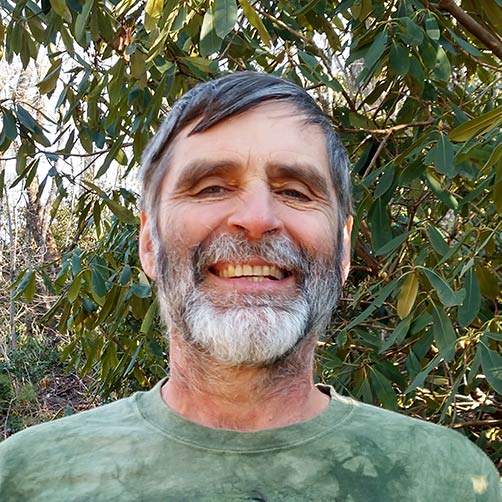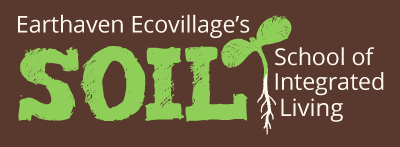Compositions > West > Non-Violent Communication
Steve Torma Intro
Steve Torma laughs when he remembers his first exposure to nonviolent communication (NVC), the system of compassionate human relations developed by psychologist Marshall Rosenberg. As a fresh-faced 25-year-old at the Hippocrates Health Institute in Florida, he attended exactly one afternoon in-service program about the practice. “I thought that I knew what NVC was after that introduction!” he recalls.
But it wasn’t until 2007 that Steve truly began to understand the transformative potential of NVC. After an eight-week intensive course by Asheville’s Jerry Donoghue, he saw that the practice went far beyond a way of talking with others. “It’s a postmodern understanding of what all religions basically talk about at their core, which is the Golden Rule: Love thy neighbor as thyself,” Steve says. “For me, NVC has become a spiritual path.”
Since that revelation, Steve has founded The REAL Center and 10,000 Love Letters, two projects for spreading the word of NVC, and has instructed nearly 600 people in the practice. He brings that mission to Earthaven Ecovillage in partnership with SOIL and Culture’s Edge through Compassion Camp, taking place August 15-18, 2019. Read Steve’s interview below as he shares more about the camp, the power of NVC, and its value to sustainability advocates.
SOIL Interview
SOIL: How did you start teaching nonviolent communication (NVC)?
Steve: I first came across NVC at the Hippocrates Health Institute when I was 25. I had been a psychology major and was passionate about social change, so it sounded really fascinating to me. We had a guy come in and do an afternoon in-service about it — I thought that I knew what NVC was after that introduction! But it was actually in 2007, when I was personally having a lot of challenges in my relationship and in my neighborhood at Earthaven, that I got committed to shifting my consciousness. We were having a lot of conflict on a lot of levels, and it was really distressing to me.
So we had Jerry Donoghue come to Earthaven and lead an 8-week course. I immediately started to see the transformation in myself, the people around me, and the community, and that lit a fire under me. The more I saw the benefit in myself, the more I got energized to promote NVC. Around that same time, my friend Alan Muskat and I were starting The REAL Center, and we decided to have NVC be the core of the curriculum that we developed.
SOIL: Many people see NVC as just a system of communication. Why does that miss the larger picture?
Steve: Marshall [Rosenberg, founder of NVC] was very clear that NVC explores four aspects of being human. The first is a model of communication for creating the most effective relationships that we can with ourselves and each other. But it also explores the questions of language, the use of power, and consciousness. It’s a postmodern understanding of what all religions basically talk about at their core, which is the Golden Rule: Love thy neighbor as thyself.
The intention of NVC is to care about myself and the other person equally, not my needs above theirs, or theirs above mine. For me, NVC has become a spiritual path, because it points to the common spiritual path of all these religions. What humanity is desperately needing right now at this stage in our evolution is to break through to this next level of moral and ethical development.
SOIL: Why should sustainability advocates pay attention to NVC?
Steve: Particularly in Western culture, we’re the descendants of what are often called dominator cultures, where the mode of operation is making people do what you want them to do through punishment and reward systems. In my 40 years of living in alternative culture, what I’ve seen over and over is that really good-hearted, good-intended people try to create new models of living but have difficulty coexisting harmoniously, peacefully, and co-creatively with each other because they carry this baggage of dominator culture.
In order for us to be more powerful examples of living sustainably, we have to get better at living with each other. This means shifting from power over consciousness to power with consciousness. What we have inherited from our dominator culture gets in the way of being able to function well in alternative organizations — it’s a major obstacle.
SOIL: What is the biggest challenge to practicing NVC?
Steve: I am! I make it most difficult for myself. From an NVC perspective, if I am listening to another person through my compassionate consciousness filters, he or she is only ever sharing with me what they’re feeling and needing. The only thing human beings are ever doing is saying please and thank you: “Please, I have a need,” and “Thank you for helping me meet my need.” If we’re operating out of our dominator consciousness, then we will use things like threats and demands, but if I am able to filter my perceptions through this consciousness of NVC, then I can see that they’re only saying please.
We’ve all experienced this. We’re having a fight with our partner or our family, and we say something like, “You selfish idiot, I can’t believe you’d treat me like this!” That phrase is a tragic expression of an unmet need — tragic because in that moment, when I speak to someone in that way, it makes it almost impossible for that person to care about me and want to meet my need. When we talk to each other in those judgements, it’s very difficult for us to care about each other.
SOIL: What can participants expect at Compassion Camp?
Steve: While the camp is focused to a large degree on NVC and is targeted for the NVC community, I want it to go beyond just NVC. That’s why I’m calling it Compassion Camp, not NVC camp. I certainly think NVC is the most powerful combination of theory and practice that I know for creating personal and social transformation, but there’s also a lot of other really good stuff. As we look around the world and see things in the media, there’s a tremendous need for human beings at all levels to increase our capacity to see our humanness, to see and care about each other deeply. In some ways, it seems like there’s more of a call for this than ever.
SOIL: Is there anything else you’d like to add?
Steve: In addition to learning from each other, I want there to be a really big emphasis on celebration. In Angeles Arrien’s book “The Four-Fold Way,” she talks about how cultures all over the world use four common ways to access spirit or generate energy for growth and learning when they get together: singing, dancing, storytelling, and silence. I’ve always loved that as a reminder, especially for our culture, where we’re under-skilled at how to have a really connected, celebratory time together. So Compassion Camp will have a major emphasis on these four ways of being with each other and creating joy Marshall was very clear that NVC isn’t just about communication, but how we are with each other.
Related Links
Steve’s 2020-12-08 podcast Life in Community
Steve’s 2021-02-08 podcast Compassionate Communication in Community Settings.
Compassion Camp, an annual gathering at SOIL
Winter 2021 online workshop Compassionate Communication in Community

Steve Torma
Compassion Camp Co-Director and Nonviolent Communication Faculty
As a lifelong peace, justice, and ecology educator and activist with over 40 years of community living, Steve has sought to integrate personal and social transformation in his own life, in the communities where he lives, and in the larger society. His passion for integral living and thinking has led him to study and experiment with a wide range of spiritualities, psychological systems, and social theories as they relate to creating a more just and sustainable world.
